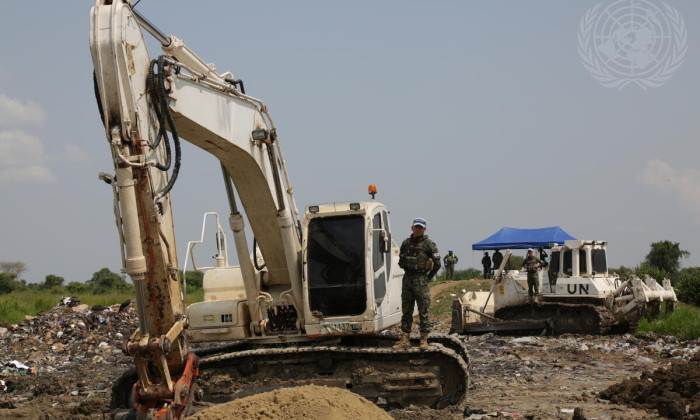Economic Reconstruction
Violent conflicts damage the economies and infrastructures of the affected countries and regions, undermining the generation of incomes and the provision of basic services to the population. Therefore, peace operations are also frequently tasked to contribute to economic reconstruction. In the short term, reconstruction is about providing shelter, electricity, water, and traffic infrastructure.
A few missions in the past were mandated with the administration of territories, such as the UN Transitional Administration in Timor-Leste (UNTAET) or the UN Interim Administration Mission in Kosovo (UNMIK), undertaking comprehensive economic reconstruction and development activities. Activities included the promotion of economic activity, infrastructure development, the protection of property rights as well as economic sector regulation.
At the same time, missions contributed to >Institutional Capacity Building and Governance, as well as to the mobilization of international support for the economy. International donor conferences such as those for Afghanistan, Iraq or Kosovo are important coordination mechanisms for economic reconstruction. Participants include bilateral and multilateral donors, but also representatives of the UN and their peace operations.
Peace operations also frequently contribute to economic reconstruction. This includes measures such as Quick Impact Projects as well as the promotion of economic cooperation between conflict parties. Examples:
- MINUSCA (Central African Republic)
- OSCE Programme Office in Dushanbe (Tajikistan)
 © Nektarios Markogiannis
© Nektarios Markogiannis
Increasingly, UN peace operations are part of “integrated presences”, in which they are closely linked with the UN Country Team that unites all UN agencies in their area of operation. This allows missions to take advantage of, for example, the UN Development Programme’s economic expertise for their own work.
The UN missions in the Democratic Republic of the Congo (MONUSCO), Mali (MINUSMA) and the Central African Republic (MINUSCA) have carried out Quick Impact Projects (QUIPs). They aim to produce immediate and tangible result for the populace, thus stabilizing the situation.
Economic aspects are also reflected in the OSCE’s concept of comprehensive security. It encompasses three dimensions: (1) the politico-military dimension, (2) the economic and environmental dimension, and (3) the human dimension. Activities in the second dimension aim at preventing conflict by intensifying economic cooperation. OSCE presences in the post-Soviet space are particularly active in this area.
As of 02.08.2023